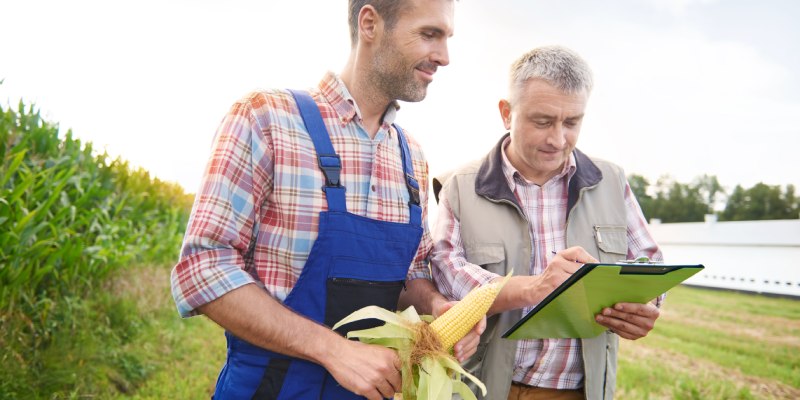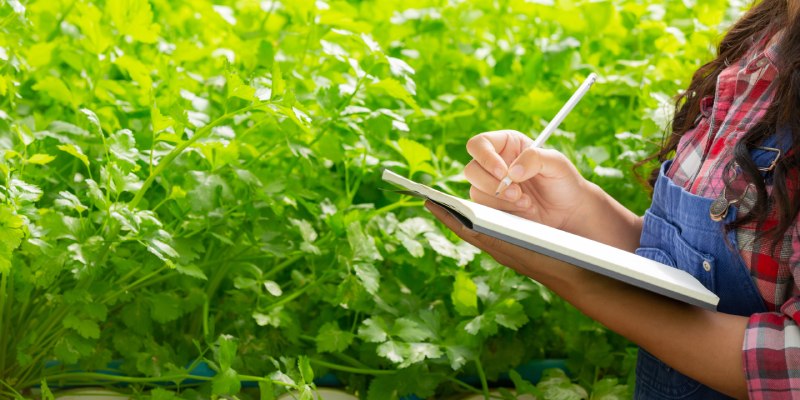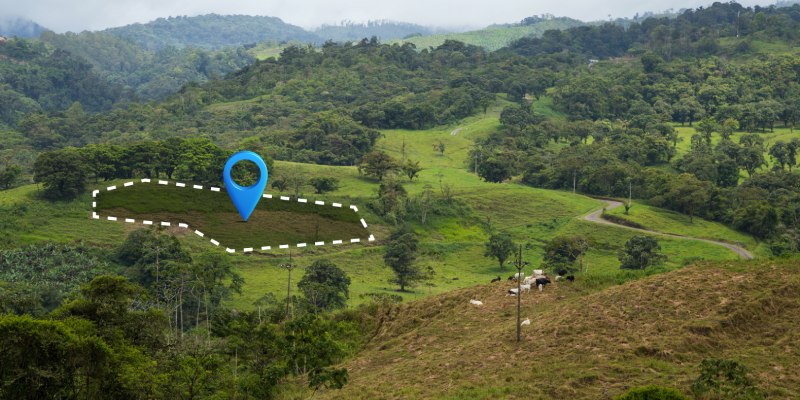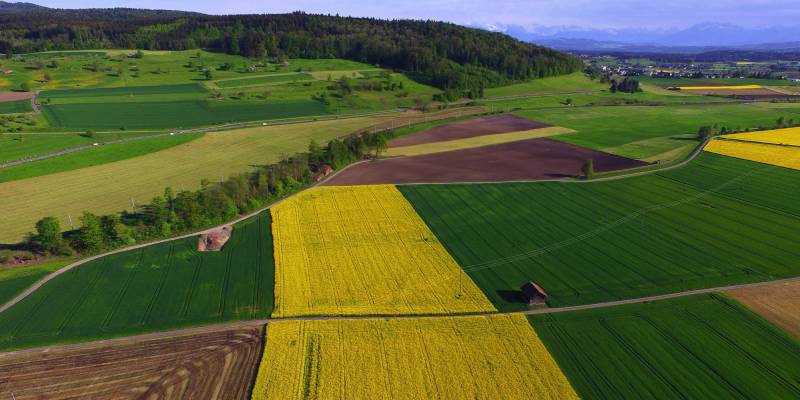Investing in agricultural land near Bangalore can be a lucrative venture, offering opportunities for farming, agro-tourism, or simply a peaceful retreat.
However, it’s crucial to navigate this process carefully to avoid common pitfalls.
Here, we’ll walk you through the top 10 Mistakes to Avoid When You Buy Agricultural Land Near Bangalore, ensuring your investment is sound and fruitful.
Top 10 Mistakes to Avoid When You Buy Agricultural Land Near Bangalore
Let’s explore the Top 10 Mistakes to Avoid When You Buy Agricultural Land Near Bangalore:
Understanding Local Zoning Laws
Before buying agricultural land, it’s essential to understand the distinction between agricultural and non-agricultural land.
Agricultural land is designated specifically for farming and related activities, while non-agricultural land is used for residential, commercial, or industrial purposes.
Misunderstanding these differences can lead to legal complications and potential fines.
- Agricultural Land: Designated for farming and related activities.
- Non-Agricultural Land: Used for residential, commercial, or industrial purposes.
Local Zoning Regulations and Restrictions
Each area has specific zoning laws that dictate how land can be used.
Ensure you familiarize yourself with the local zoning regulations in Bangalore to avoid purchasing land that may not be used as intended.
Ignorance of these rules can result in significant setbacks and legal issues.
- Check local zoning laws: Verify the permissible uses of the land.
- Avoid legal complications: Ensure compliance with zoning regulations.
Conducting Proper Soil Testing
Soil quality is a critical factor in determining the success of agricultural activities.
Poor soil can lead to low crop yields and increased expenses for soil improvement measures.
- Good soil quality: Essential for high crop yields.
- Poor soil quality: This leads to low yields and higher improvement costs.
Types of Soil Tests
There are several types of soil tests, including pH testing, nutrient testing, and salinity testing.
Each test provides valuable information about the soil’s capacity to support agriculture.
- pH Testing: Measures the acidity or alkalinity of the soil.
- Nutrient Testing: Assesses the levels of essential nutrients.
- Salinity Testing: Determines the salt content in the soil.
Interpreting Soil Test Results
Once you have your soil test results, it’s important to understand what they mean.
A professional agronomist can help interpret the data and recommend necessary amendments to enhance soil quality.
- Consult an agronomist: Get professional advice on interpreting results.
- Plan soil amendments: Based on test results for optimal crop growth.
Checking Water Availability and Sources
Water is a vital resource for any agricultural operation.
Ensure the land you purchase has adequate water supply for irrigation and other farming activities.
- Adequate water supply: Essential for successful farming.
- Assess water needs: Based on the type of crops and farming scale.
Groundwater vs. Surface Water
Evaluate the availability of both groundwater and surface water.
Groundwater sources include wells, while surface water sources include rivers, lakes, and ponds.
Each has its own set of legal and environmental considerations.
- Groundwater sources: Wells and boreholes.
- Surface water sources: Rivers, lakes, and ponds.
- Legal considerations: Ensure legal access to water resources.
Legalities of Water Usage
Understanding the legalities surrounding water usage rights is essential.
Ensure that the land has legal access to sufficient water resources to meet your agricultural needs.
- Verify water rights: Ensure legal entitlement to water resources.
- Comply with regulations: Follow local laws regarding water usage.
Verifying Land Ownership and Titles

Clear land titles are crucial to avoid future disputes.
Unclear titles can lead to legal battles and loss of investment.
- Clear titles: Essential to prevent ownership disputes.
- Avoid legal battles: Ensure all documents are in order.
How to Verify Ownership
To verify ownership, check the land records with the local authorities and ensure there are no outstanding claims or disputes on the property.
- Check land records: Verify with local authorities.
- Ensure no disputes: Confirm no outstanding claims on the property.
Common Title Issues
Common issues include multiple claims to the same piece of land, inheritance disputes, and unpaid loans secured by the land.
Addressing these issues before purchasing is vital.
- Multiple claims: Ensure sole ownership before purchase.
- Inheritance disputes: Verify the legal heirs.
- Unpaid loans: Check for any mortgages or loans on the land.
Assessing Accessibility and Infrastructure
Ensure the land has good road connectivity and is close to markets.
Proper infrastructure is essential for transporting goods and accessing necessary utilities.
Road Connectivity
Good road connectivity is essential for transporting goods and accessing markets.
Ensure the land is accessible by well-maintained roads.
- Well-maintained roads: Crucial for transport and accessibility.
- Proximity to highways: Reduces transport time and costs.
Proximity to Markets
Being close to markets can reduce transportation costs and make it easier to sell produce.
Check the distance to the nearest agricultural markets and supply centres.
- Nearby markets: Facilitate easy sale of produce.
- Reduce transportation costs: Minimize expenses for market access.
Availability of Utilities
Utilities such as electricity and water supply are critical for modern farming.
Ensure that these are available or can be feasibly installed on the property.
- Electricity supply: Essential for running equipment and irrigation systems.
- Water supply: Necessary for crop irrigation and livestock.
Understanding Crop Suitability and Climate
Choose crops that are well-suited to Bangalore’s climate.
Understanding local weather patterns helps in selecting crops that will thrive.
Climate Conditions Around Bangalore
Bangalore’s climate is generally favourable for agriculture, but understanding specific microclimates in the area can help in selecting the right crops.
- Favorable climate: Supports a variety of crops.
- Microclimates: Identify specific conditions for crop selection.
Suitable Crops for the Region
Certain crops thrive better in Bangalore’s climate.
Research which crops are most profitable and sustainable in the region before making your decision.
- Profitable crops: Identify high-yield and high-demand crops.
- Sustainable farming: Choose crops suited to the climate and soil.
Considering Future Development Plans
Check for any upcoming government or industrial projects.
Future developments can impact the value and usability of the land.
Government Development Projects
Government projects can significantly impact agricultural activities.
Stay informed about any planned infrastructure or industrial projects in the vicinity.
- Infrastructure projects: Can affect land value and usage.
- Industrial developments: Assess the impact on agricultural activities.
Impact on Agricultural Activities
Future development can either positively or negatively affect your agricultural activities.
Ensure that potential developments align with your long-term plans for the land.
- Positive impacts: Improved infrastructure and market access.
- Negative impacts: Possible land use restrictions or environmental issues.
Evaluating Financial and Legal Aspects
Budget for all costs, including land, legal fees, and taxes.
Verify clear titles and ensure all legal aspects are thoroughly checked to avoid complications.
Budgeting for Land Purchase
Set a realistic budget that includes the cost of land, legal fees, taxes, and potential improvements.
- Realistic budget: Account for all expenses.
- Financial planning: Ensure funds for purchase and development.
Understanding Legal Fees and Taxes
Legal fees and taxes can add up.
Be aware of all the costs involved in the purchase and ownership of agricultural land.
- Legal fees: Include attorney and registration fees.
- Taxes: Be aware of property and transfer taxes.
Access to Agricultural Loans
Agricultural loans can provide the necessary funds to purchase and develop land.
Research available loan options and eligibility criteria.
- Loan options: Explore different agricultural loan programs.
- Eligibility criteria: Ensure you meet the requirements for loans.
Consulting Agricultural Experts and Advisors
Seek guidance from agricultural experts before making a purchase.
Their insights can help you assess the land’s potential and make informed decisions about its suitability for your farming goals.
Role of Agricultural Consultants
Agricultural consultants can provide invaluable advice on soil health, crop selection, and farm management.
Their expertise can help you make informed decisions.
- Expert advice: Benefit from professional insights and recommendations.
- Informed decisions: Based on scientific and practical knowledge.
Choosing the Right Expert
Select a consultant with experience in the Bangalore region and a good track record.
Personal recommendations and professional networks can help in finding the right expert.
- Experienced consultants: Choose those familiar with local conditions.
- Reputation: Seek recommendations and check credentials.
Avoiding Emotional Purchases
Purchasing land based on emotions rather than logic can lead to poor investment decisions.
Ensure your decisions are based on thorough research and analysis.
- Rational decisions: Base your purchase on facts and data.
- Avoid impulsive buys: Ensure comprehensive evaluation before buying.
Avoiding Common Emotional Pitfalls
Common emotional pitfalls include falling in love with a piece of land without considering its practicality or overestimating your ability to improve poor-quality land.
- Practical evaluation: Assess the land’s suitability objectively.
- Realistic expectations: Understand the effort required for improvements.
Inspecting Land Personally
A personal inspection allows you to assess the land’s condition and suitability for your needs.
Photos and descriptions can be misleading.
- First-hand assessment: See the land in person for accurate evaluation.
- Identify issues: Spot potential problems not visible in photos.
What to Look for During Inspection
Look for signs of good soil quality, adequate water supply, and ease of access.
Also, check for any visible encroachments or disputes.
- Soil quality: Look for healthy vegetation and soil texture.
- Water availability: Check for existing water sources.
- Access and infrastructure: Ensure easy access and basic amenities.
Choose the Best Agriculture Land Near Bangalore

When searching for the best managed agriculture land to buy near Bangalore, it’s essential to consider not only the land’s fertility and water availability but also the management practices and overall sustainability of the farming operations.
A prime example of such excellence is Sanjeevani Farms.
Why Choose Sanjeevani Farms Agricultural Land?
Sanjeevani’s managed agricultural land combines the best of nature and technology to create an ideal environment for sustainable farming and peaceful living.
Our projects like SilverWoods, GreenVista, and Tapovan offer luxurious amenities, eco-friendly practices, and high investment returns.
Here’s why Sanjeevani Farms stands out:
- Eco-friendly: Promotes sustainable farming.
- Luxury: Offers premium facilities.
- Investment Security: Rising land values.
- Community: Encourages sustainable living.
- High Returns: Advanced farming techniques.
- Retreats: Provides a serene escape.
Conclusion
We have covered a detailed guide on 10 Mistakes to Avoid When You Buy Agricultural Land Near Bangalore. Investing in agricultural land near Bangalore requires careful consideration of various factors. By avoiding the common mistakes outlined above, you can ensure a successful and profitable investment. Remember to conduct thorough research, seek professional advice, and make well-informed decisions.
FAQs
What is the best type of soil for agriculture near Bangalore?
The best soil types for agriculture near Bangalore are red loamy soils and black cotton soils, which are rich in nutrients and have good water retention capacity.
How can I ensure the land has a clear title?
To ensure a clear title, verify the land records with local authorities, check for any encumbrances, and consider hiring a legal expert to conduct a thorough title search.
What crops are most profitable in the Bangalore region?
Crops like ragi, maize, groundnut, and various horticultural crops such as tomatoes, onions, and beans are quite profitable in the Bangalore region.
How do I find a reputable agricultural consultant?
You can find reputable agricultural consultants through local agricultural universities, professional networks, or recommendations from other farmers in the area.
What legal considerations should I be aware of when buying agricultural land?
Legal considerations include verifying land titles, understanding zoning laws, checking for any pending litigations, and ensuring compliance with local agricultural land purchase regulations.





